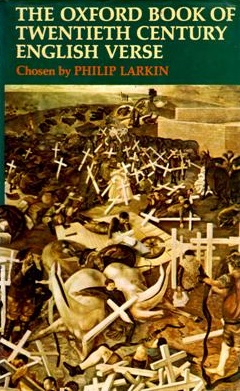 First edition | |
| Author | Philip Larkin |
|---|---|
| Cover artist | Stanley Spencer by The Resurrection of Soldiers |
| Language | English |
| Genre | Poetry |
| Publisher | Oxford University Press |
Publication date | 1973 |
| Publication place | United Kingdom |
| OCLC | 637331 |
| 821/.9/108 | |
| LC Class | PR1225 .L3 |
The Oxford Book of Twentieth Century English Verse is a poetry anthology edited by Philip Larkin. It was published in 1973 by Oxford University Press with ISBN 0-19-812137-7. Larkin writes in the short preface that the selection is wide rather than deep; and also notes that for the post-1914 period it is more a collection of poems, than of poets. The remit was limited by him to poets with a period of residence in the British Isles. Larkin's generous selection of Thomas Hardy's poems has been noted for its influence on Hardy's later reputation. [1] On the other hand, he was criticized, notably by Donald Davie, for his inclusion of "pop" poets such as Brian Patten. [2] The volume contains works by 207 poets.